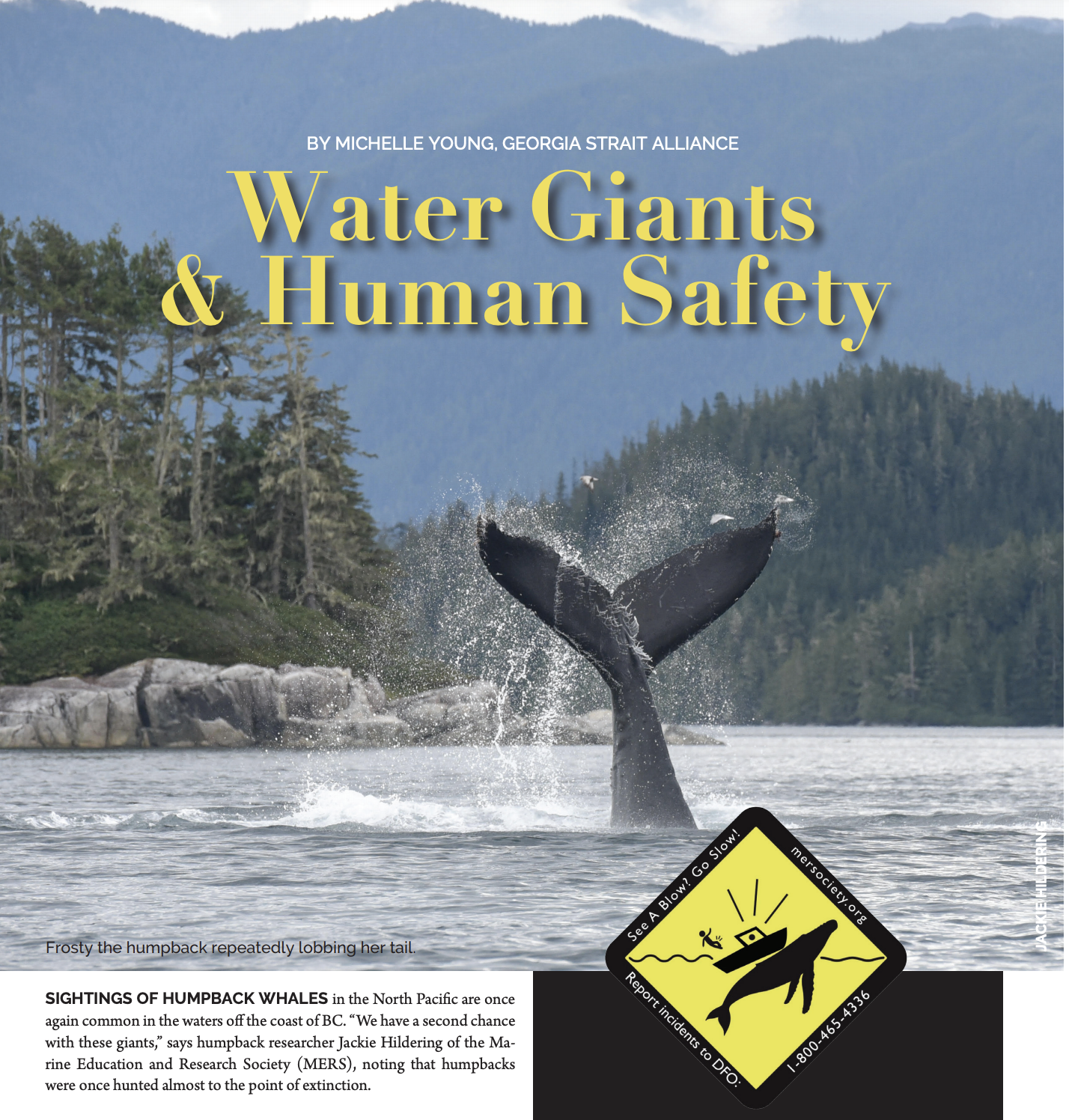
Image: Cheyenne Brewster
Keeping your distance from whales is vital in preventing physical disturbance and noise which can affect migratory patterns and communication between whales.
- Stay at least 200 metres from orcas (400 metres in southern BC coastal waters between Campbell River and just north of Ucluelet), and from all whales, dolphins, or porpoises if they are resting or with their calf.
- Stay at least 100 metres from all other whales, porpoises and other marine mammals.
- If you’re lucky enough to get to travel with whales, always go parallel with their direction (don’t cut across or stop in their path).
- Avoid erratic manoeuvres, and never chase whales or other animals.
- Minimize your wake and engine noise. Turn off your engine if it is safe to do so.
- Turn off echo sounders and fish finders.
- Report observed violations or harassment of marine mammals to Fisheries and Oceans Canada at 1.800.465.4336.
- Learn more about specific protection measures for Southern resident orcas.
Large Whales
There has been a resurgence in the number of humpback whales in the coastal waters around British Columbia and Washington – and these whales are very large. Their size and unpredictability increase the risk of collision and injury to whales and to boaters.

Watch for vessels flying this “Whale Warning Flag”, which signals that whales are near.
See a Blow? Go Slow!
- Be on the lookout for blows and other indicators of whale presence such as congregating birds, and slow down!
- Watch for vessels flying the “Whale Warning Flag”, which signals that whales are near.
- Increase your vigilance for whales in areas of known whale density.
- Avoid positioning beside “bait balls” of small schooling fish, as indicated by aggregations of birds, as whales may be feeding in the area and can surface suddenly.
When you suspect you are in the vicinity of large whales:
- Slow down! Speed should not be more than 7 knots when within 200 to 400 meters of whales.
- Give the whale space. Do not approach large whales within 200 metres.
- If whales surface within 200 metres of your vessel, place your engine in neutral (or ideally shut off the engine) until the whales are beyond 200 meters.
- If kayaking, raft up.
If you experience or witness a collision, entanglement or disturbance:
- Report it. In British Columbia, call the DFO Incident Reporting Line at 1-800-465-4336 (or if out of cell range, report to Coast Guard on VHF 16). Reporting entanglement and collisions is the law.
- If possible, without getting closer than 200 metres or further stressing the whale, get photos that show the injury / entanglement and allow the whale to be identified as an individual (dorsal fin and/or tail photos).
- For the safety of yourself and the whale, never attempt to disentangle the whale.
- For further detail on what to do, and not to do, regarding whale entanglement, please see “How to Save a Whale“

